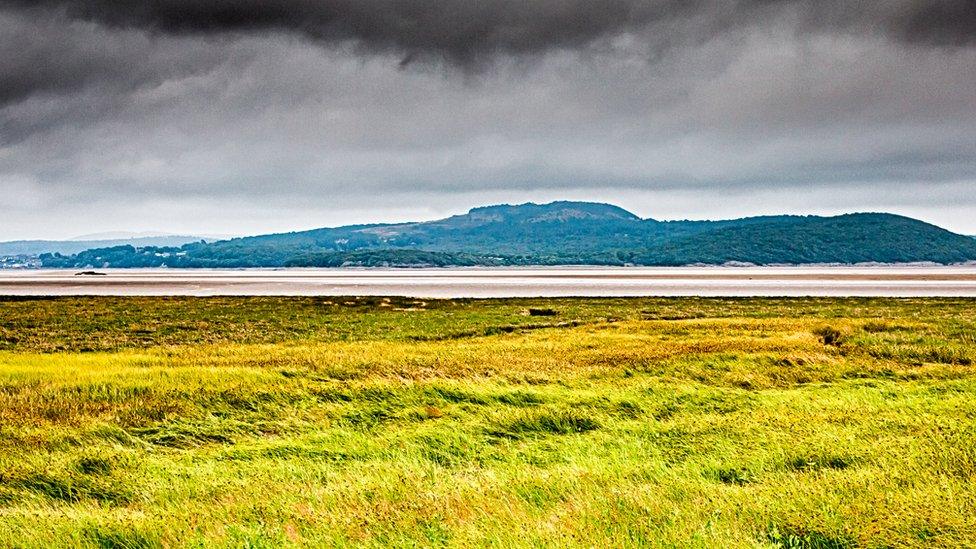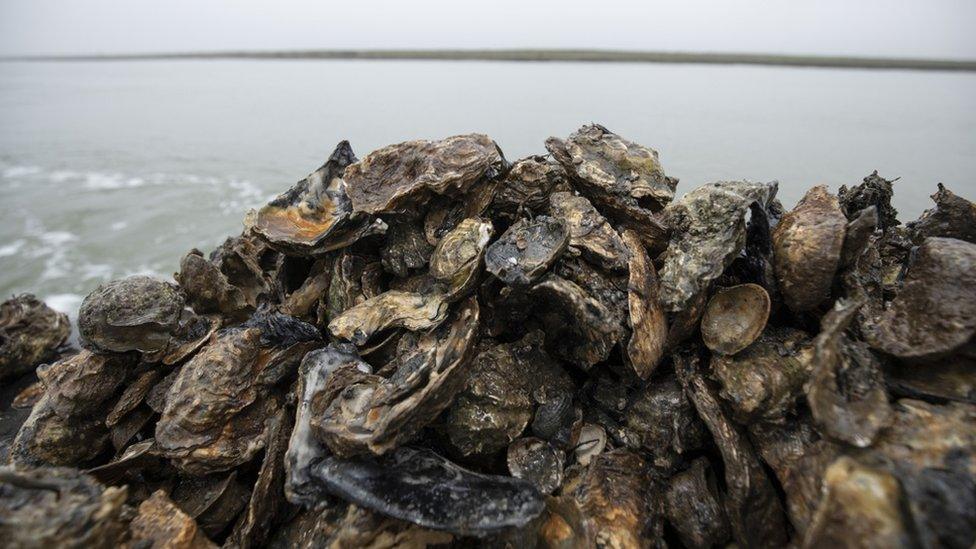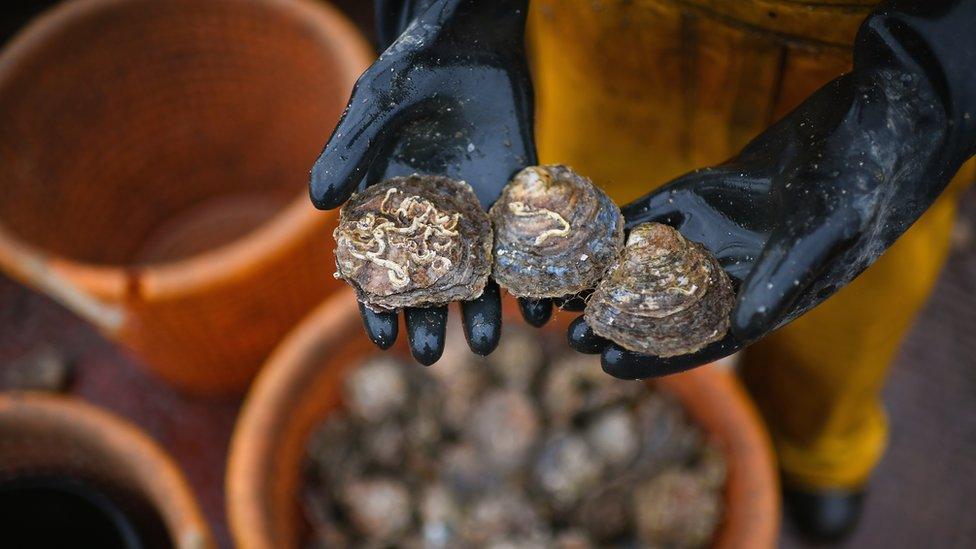Cumbria shellfish producers call for water grading change
- Published

Morecambe Bay cockles now need to be purified before they can be exported to the EU
Shellfish companies in Cumbria are calling on the government to change the monitoring system that grades the county's fishing waters.
Since 1 January British fishermen have been unable to sell live, untreated shellfish caught in the UK's Class B waters to the European Union (EU).
The government said it was seeking "an urgent resolution on this matter".
Steve Manning, who fishes from Flookburgh, said the UK could use EU testing regimes instead.
"We think they do it probably on a daily basis whereas our results are taken over 12 month to two-year periods," he said.
Heavy rainfall and farm muck spreading washed contaminants into Morecambe Bay, bringing down the whole year's classification, he said.
Sarah Horsfall from the Shellfish Association of Great Britain said EU countries classified their waters "very differently" from the UK.
"If other countries can do it a different way, which doesn't cause any issue under the legislation, that allows their industry to operate in a more flexible way, then why shouldn't we do it?" she said.

The UK now has to comply with third country rules on exporting live oysters and other shellfish to the EU
Pressure could be put on the government to clean up UK coastal waters to "get them into a classification A", Mr Manning said.
"Everybody else seems to be able to do it except the UK," he said.
As an EU member Britain was exempt from rules for third countries requiring mussels, oysters, clams, cockles and scallops from waters lower than Class A to be pre-treated before export.
The government assured the industry current restrictions would end on 21 April but it became clear in February they were permanent.
It said it was "willing to provide additional reassurances to demonstrate shellfish health within reason, but this must recognise the existing high standards and history of trade between us".
Exporters said pre-treatment was expensive and shortened shelf-life, making sales commercially unviable.

Follow BBC North East & Cumbria on Twitter, external, Facebook, external and Instagram, external. Send your story ideas to northeastandcumbria@bbc.co.uk, external.
- Published2 February 2021

- Published15 January 2021
